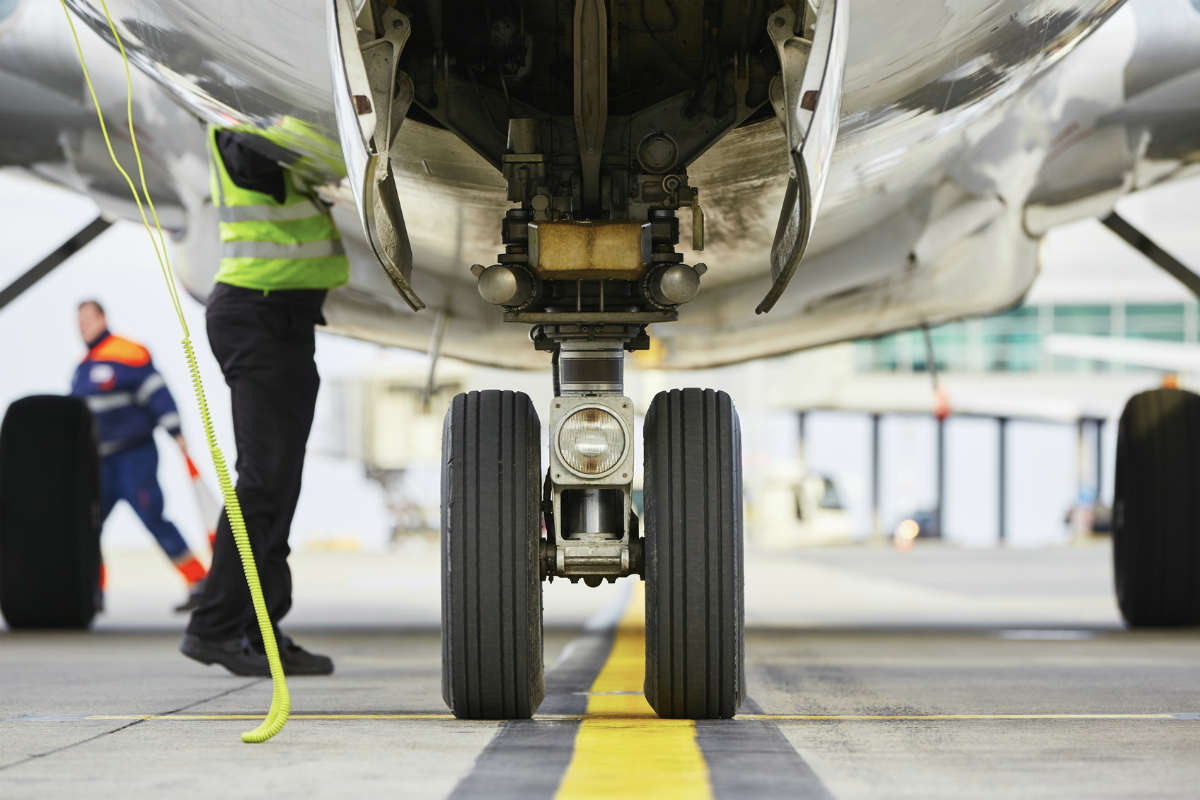Airline employees face numerous workplace hazards on a daily basis.

According to the Flight Safety Foundation, the airline industry is among one of the most stressful and hazardous industries to work in.
Every worker in the airline industry is exposed to work-related injuries. These hazards can be found on the tarmac, on the aircraft, in air, and even in the terminal. Some of the common airline industry injuries happen –
- While handling of large, heavy baggage
- While handling heavy uneven loads
- While twisting and bending during loading of luggage
- While servicing and cleaning the aircraft in between flights
- Due to mechanical errors
- While transporting disabled passengers
- During inflight turbulence
- On slippery pavements
- If struck by heavy equipment or vehicles
- Due to shift work disorders
Discussed below are some of the airline jobs and their associated risks of injury.
Ground Crew and Ramp Agents
Ground crew and ramp agents are entrusted with tasks such as handling freight and baggage, servicing and marshaling aircraft, assisting with aircraft towing and pushback, and assisting disabled passengers. These workers often work amidst moving planes and vehicles that increase the chances of injury.
People in these jobs are often diagnosed with injuries to the neck, back, arms, shoulders, and tendons due to constant pulling, lifting, pushing, twisting, bending, and kneeling during an eight-hour shift.
Moreover, ramp agents are exposed to a number of ramp accidents where workers can get stuck by heavy moving vehicles and machinery. They are also exposed to hazards of trips, slips, and falls due to obstacles on the ramp like tow-bars, fueling hoses, ramp cables and even spilled liquids such as oil. According to the International Air Transport Association, most of these injuries are caused due to human error.
These workers are also exposed to constant high levels of noise from the aircraft, baggage handling machinery, fuel trucks, etc. and often are exposed to risks of hearing loss.
Gate Agents and Crew
Gate agents and crew handle responsibilities like assigning inflight seats, handling standby passengers, making announcements for flight details and boarding, managing the jetway doors during disembarkation and boarding, and managing customer services. These gate agents and crew members have to handle demanding customers during any travel disruptions due to which they often face high levels of stress and may later be diagnosed with lifestyle diseases like hypertension, heart diseases, diabetes, and strokes.
Flight Attendants
Today, most airline passengers expect five-star in-flight customer service. This demand puts severe pressure on flight attendants. Right from demanding work timings, constant stress to provide great customer satisfaction, right down to physical strain due to pulling and pushing beverage carts, lifting hand luggage, stress, cuts, bruises, and strains caused by inflight turbulence, and working in shifts all add up to causing a number of work-related injuries and disorders.
Flight attendants commonly complain of Musculoskeletal Disorders (MSD’s), repetitive stress injuries, disorders like hypertension, cardiovascular disease, diabetes, gastrointestinal problems, sleep disorders and obesity due to working in shifts.
Kansas City Workers Comp Lawyers
All injured workers, including airline industry workers, are generally entitled to workers compensation benefits. Call (816) 399-3706 to speak with an experienced Missouri workers comp attorney at the Law Office of James M. Hoffmann.
